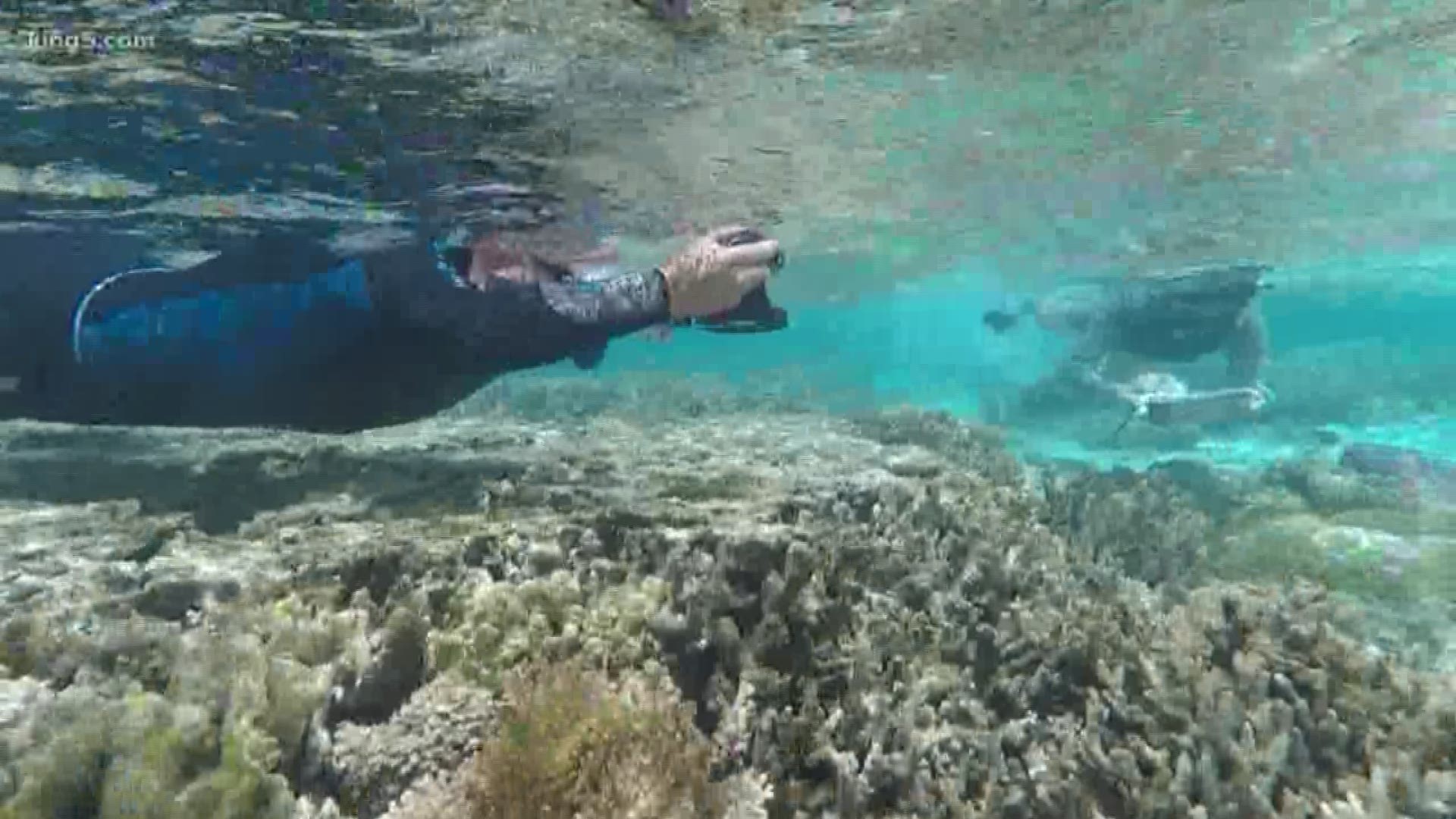The Allen Coral Atlas project will be like Google Street View for coral reefs, or at least that is the goal.
With coral reefs in decline, the project aims to image the world’s reefs with enough detail to identify events that could hurt or kill coral reefs fast enough to intervene.
Coral reefs make up 1% of the world’s oceans, but 25% of marine life is dependent on them. In addition to supporting marine life, one-sixth of the world’s coastlines are protected by coral reefs which provide a buffer from storms, waves, and floods.
The coral atlas is created using satellite images which are corrected to remove noise from cloud cover, light reflection, and water to produce a clear image of the reefs. From there, marine scientists perform detailed assessments of the reefs and compare their observations to satellite images to classify different colors according to whether they are a reef, sand, algae, seagrass, or anything else to create a detailed global map.
The project is a collaboration between Vulcan Inc., Planet Labs, the National Geographic Society, Arizona State University’s Center for Global Discovery and Conservation Science, and the University of Queensland in Australia.
"The globe is facing a major crisis. We have lost half the world’s coral reefs in just a short period of time. We are suffering from a data gap that is hindering our ability to act effectively to save the world's corals,” Lauren Kickham of Vulcan Inc. explained.
A major goal of the project is to frequently update images of the reefs and try to detect harmful events like bleaching or large discharges of sediment that could threaten the health of the reef so that timely interventions can be implemented. Knowing the full extent of the reefs will also help designate marine protected areas.
“For the first time we now have access to satellite imagery at a resolution, frequency, and affordability that we’ve never had before,” said Kickham. “Only 1% of coral reefs get surveyed. It’s expensive and time-consuming. This will allow the limited resources we have for conservation to be optimized on action, not on gathering the data to inform the action.”
“The risk of doing nothing is that the reefs will disappear completely. They protect coastlines and provide food resources,” explained Chris Roelfsema, the senior research fellow at the University of Queensland.
A study published earlier this month found that young corals are moving both north and south from the equator, away from the tropics where they normally thrive, into subtropical regions which have become more suitable habitats as climate change has altered ocean conditions. Young corals have declined by 85% in the tropics over the last 40 years but doubled in the subtropics over that same time.
“Coral can’t move; that’s why stressors like sedimentation or climate change are a big problem," said Jacquelline Padilla-Gamiño of the University of Washington School of Aquatic and Fishery Sciences, one co-author of the study. "It’s only through babies that they can change location, and it’s a long process.”
The study showing that young corals are settling in new locations offers some hope for their future resiliency, but Padilla-Gamiño noted that they still face challenges.
“It’s very different to have a few corals here and there than a reef," Padilla-Gamiño said. "A reef takes a lot longer to grow than just a colony.”
Padilla-Gamiño was enthusiastic about the Allen Coral Atlas.
“It’s important that we have tools like this," she said. "It will help the design of new experiments.”
Roelfsema is optimistic about efforts to protect coral reefs.
“I’m positive that we can make change, but we need to have the willingness to change,” he said.

